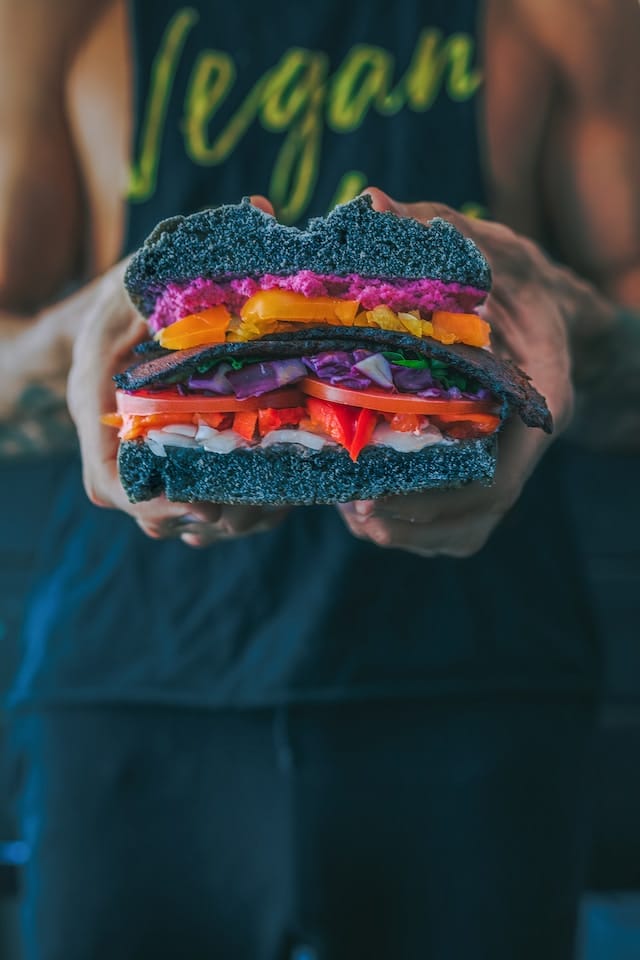Everyone wants to live a healthy and balanced life, and diet plays a crucial role in meeting this aspiration. With the rise in health consciousness, many of you have been turning towards vegetarian and vegan diets in the hope of reaping numerous health benefits. However, it is also essential to delve deeper into the potential risks associated with these dietary choices. Today, we focus on the impact of a long-term vegan diet on bone health. Drawing on various scholar studies and investigations, we explore whether vegans have a lower bone density leading to increased risk of fractures.
The Importance of Bone Health
Before we delve into the specifics of vegan diets and bone health, let’s first understand the importance of maintaining robust bone health. Bones are not mere structural support for your body; they also protect your organs, assist in movement, and store and release minerals like calcium that are crucial for bodily functions.
A voir aussi : How Does Urban Farming Impact Community Health and Nutrition?
According to numerous studies available on Pubmed and Crossref, it is apparent that poor bone health can result in numerous complications, the most common being osteoporosis. This condition is characterized by fragile bones, making individuals more susceptible to fractures. Therefore, it is essential to adopt dietary and lifestyle habits that promote bone health, with calcium playing a pivotal role.
Vegan Diet and Calcium Intake
A vegan diet excludes all animal products, meaning vegans must obtain crucial nutrients like calcium from plant sources. But can plant foods provide enough calcium to maintain healthy bones?
A lire aussi : Can Exergaming Contribute to Physical Activity Levels in Children with Limited Outdoor Access?
A study published in the American Journal of Clinical Nutrition (doi: 10.3945/ajcn.2009.26736G) found that vegans tend to have lower calcium intake compared to non-vegetarians. This is because some of the richest sources of calcium – dairy products – are off-limits for vegans. However, plant foods like fortified plant milk, tofu, and some leafy green vegetables are good sources of calcium.
But the challenge lies in bioavailability. The calcium in some plant foods is not as easily absorbed as the calcium found in dairy products due to the presence of substances like oxalates and phytates. Consequently, vegans might need to consume larger amounts of these foods to meet their calcium needs.
Long-Term Vegan Diet and Bone Density
Having established the relationship between vegan diets and calcium intake, the next question is: Does a long-term vegan diet affect bone density?
In a study published on Pubmed (doi: 10.1093/ajcn/89.5.1627S), it was observed that vegans had slightly lower bone mineral density (BMD) than non-vegetarians. The researchers suggested this might be due to lower calcium intake among vegans, emphasizing the importance of adequate calcium intake for vegans.
Google scholar provides another study from Germany (doi: 10.1038/s41598-020-75273-9) showing that vegans have a 43% higher risk of fractures as compared to meat-eaters due to lower BMD. However, it’s important to note that other lifestyle factors like physical activity and vitamin D status can also affect BMD. Therefore, it’s essential to consider these factors when evaluating the link between vegan diets and bone health.
Are All Vegans at Risk?
While it may sound concerning that a vegan diet can potentially lead to lower bone density, it is crucial to understand that not all vegans are at risk. A well-planned vegan diet that meets all nutrient requirements can support healthy bones.
A study available on Crossref (doi: 10.1111/j.1365-277X.2004.00532.x) states that vegans who consume at least 525 mg of calcium per day do not have a higher risk of fractures than non-vegetarians. This highlights the importance of meeting the recommended dietary allowance (RDA) for calcium.
Another publication on Pubmed (doi: 10.1001/jamainternmed.2020.7190) points out that vegans who consumed adequate amounts of protein had similar BMD as non-vegetarians. This throws light on the importance of a balanced vegan diet that includes plenty of legumes, whole grains, and nuts to meet protein requirements.
How Can Vegans Support Their Bone Health?
Given the potential risk of lower bone density and increased fracture risk, it is crucial for vegans to take proactive steps to support their bone health. Here are some strategies:
- Ensure adequate calcium intake: Include a variety of calcium-rich plant foods in your diet like fortified plant beverages, tofu made with calcium sulfate, and low-oxalate green vegetables like kale and collard greens.
- Pay attention to protein: Include ample sources of plant protein in your meals. Combine different plant proteins to ensure you’re getting all essential amino acids.
- Get enough vitamin D: This nutrient is essential for calcium absorption. Get adequate sunlight or consider taking a vegan vitamin D supplement if necessary.
- Lead an active lifestyle: Regular weight-bearing and resistance exercises can help improve your BMD.
In all, while a vegan diet can pose challenges for bone health due to potential lower intake and bioavailability of calcium and protein, a well-planned vegan diet can provide all the necessary nutrients for maintaining healthy bones. It is, therefore, crucial to plan your diet meticulously and consider dietary supplements if needed. Always remember your bone health is a vital aspect of your overall well-being.
Plant-Based Protein and Bone Health
The bone health of vegetarians and vegans has been linked with their protein intake. Considering that a vegan diet excludes all animal-derived products, it’s critical to understand how plant-based protein impacts bone health.
A google scholar research paper (doi: 10.1016/j.bone.2004.11.013) indicates that dietary protein, both animal and plant-based, plays a substantial role in maintaining bone health. It helps increase bone mineral density and reduce the risk of fractures. However, the bioavailability of plant proteins can be lower than that of animal proteins, which may have implications on bone health in vegans.
In another study that can be accessed via doi pubmed (10.1093/ajcn/78.3.633S), it was found that individuals following a plant-based diet had lower overall protein intake than meat eaters. This could potentially lead to lower bone mineral density in vegans if not adequately addressed.
However, not all research supports this view. A meta-analysis published on Crossref Google (doi: 10.1007/s00198-009-0916-z) suggests that there is no significant difference in bone health between vegetarians, vegans, and omnivores, provided the protein intake is adequate.
In conclusion, while plant-based proteins may be less bioavailable than animal proteins, a well-planned vegan diet that meets daily protein requirements should not negatively impact bone health. High-protein plant foods such as lentils, chickpeas, quinoa, and tofu should be included regularly in a vegan diet to support bone health.
Conclusion
The increasing popularity of vegan and vegetarian diets has led to more extensive research on their impact on health, including bone health. While some studies found slightly lower bone mineral density in vegans, others showed no significant difference when the diet is well-planned and adequately balanced.
It has become evident from our discussion that vegans can maintain healthy bones by ensuring adequate consumption of key nutrients like calcium and protein. The challenge lies in the bioavailability of these nutrients from plant sources and requires careful dietary planning or supplementation when necessary.
Meeting daily recommendations for calcium, protein, and vitamin D, and leading an active lifestyle are crucial strategies for any vegan to support their bone health. Particular attention should be given to integrating calcium-rich and high-protein plant foods into daily meals.
While the health implications of long-term vegan diets on bone health can be complex, with the right balance and planning, it is entirely possible for vegans to maintain robust bone health, reducing their risk of conditions like osteoporosis.
In essence, the key lies in the careful planning of a well-rounded vegan diet that satisfies all nutritional needs. Always consult with a nutrition professional for personalized advice based on your individual dietary needs and health statuses. After all, a healthy vegan lifestyle is not only about the absence of animal products but also about ensuring the presence of all required nutrients for optimal health. That’s the fine balance that every vegan or aspiring vegan needs to strike.











